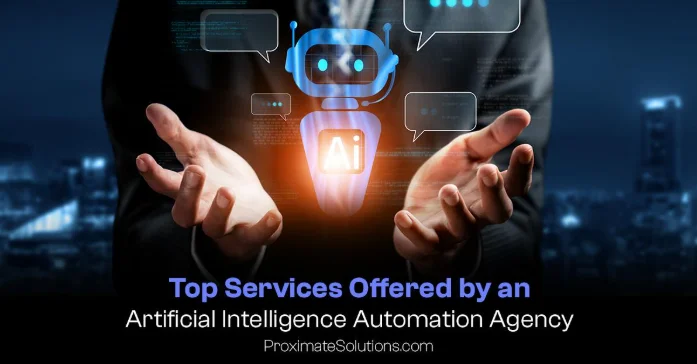Exploring Different Types of Software Development that Fit Your Business Needs

Uncover the different kinds of software development that will fit your business needs. Web Apps to embedded systems, discover what will work best for you with the help of a dependable software development company.
All businesses run with different purposes, work processes, and customer expectations. In a bid to remain relevant in an increasingly competitive world, companies are increasingly leaning towards custom software development to increase the level of efficiency, scalability, and customer engagement. But not all the approaches used in software development are similar. Whether you are automating your internal processes or want a platform for end users, you need to understand the various types of development.
Picking the correct one guarantees alignment with your vision and budget. A professional software development company can assist you in finding the ideal solution for maximizing your return on investment. In this blog, let’s discuss different kinds of software development and what each of these can do for different business objectives.
Top Software Development Types for Your Business Needs
1. Web Development
- Best For: Companies requiring a strong internet presence
Web development is concerned with the construction of websites and browser-based applications. Whether it is an e-commerce platform, a booking system or a company website, web development means that users can communicate with your brand flawlessly online. Thanks to an increasing popularity of responsive design, contemporary web apps function seamlessly on desktop and mobile browsers.
2. Mobile App Development
- Best For: Companies reaching smartphone users with custom experiences
Mobile app development means the development of applications on Android and iOS platforms. Whether you are starting a mobile-first business, offering location-based services, or gamifying customer engagement, a good mobile app can be a major source of revenue and customer loyalty.
3. Desktop Software Development
- Best For: Organizations that need strong offline tools
Desktop software is installed on the user’s computer directly. It is perfect for those applications that need high performance, complex features, or offline access, e.g, POS systems, engineering tools, or accounting software. It gives better control over the system resources and is preferred generally in secure environments.
4. Cloud-Based Development
- Best For: Companies seeking scalability, flexibility, and worldwide access
Cloud development utilizes cloud infrastructure to host and execute applications. Very applicable for SaaS products, collaborative networks, or for distributed teams, cloud-based software lowers infrastructure expenses, makes on-board deployment simpler, and enables the business to scale on demand.
5. Embedded Software Development
- Best For: Technology products that need combined hardware-software solutions
Embedded development is applied to such equipment as fitness trackers, smart homes, and industrial equipment. It integrates software with physical hardware to control certain functions. A software development company having IoT skills can assist in the creation of reliable real-time systems for such products.
6. Enterprise Software Development
- Best For: Large enterprises require integrated systems between departments
Enterprise software drives CRM, ERP, and HR applications as well as supply chains. It simplifies the process of operations, consolidates data, and enables business intelligence. Such software is usually tailor-made to correspond to complicated corporate processes and reporting needs.
7. Game Development
- Best For: Companies venturing into the entertainment, education, or simulation industries
Game creation ranges from mobile puzzle games to console blockbusters and training simulators. Gamification is the tool used by businesses to attract users, facilitate learning, or experience with virtual settings. The right development partner ensures that one has smooth performance and an immersive design.
8. AI & Machine Learning Development
- Best For: Companies looking for smart automation and analytics
AI development uses algorithms to replicate human decision-making, perform certain tasks, and gain insights. Whether you are introducing chatbots, predictive analytics, or fraud detection, AI can make your customers’ interactions with you and the way you make data-driven decisions different.
9. DevOps and Automation Software
- Best For: Technology-driven companies seeking to have optimized IT operations
DevOps is the set of tools that automate software delivery, testing, and deployment. They enhance the cooperation among development and IT teams, minimize the human error, and facilitate speed to market. Such solutions are critical for companies that often change or grow their digital services.
10. Blockchain Development
- Best For: Businesses that require secure, decentralized solutions
Blockchain development promotes the usage of applications in fintech, logistics, and identity management. Transparency, data immutability, and secure transactions are offered by it. Whether it is a crypto wallet or a smart contract platform, blockchain provides security for sensitive operations.
11. API Development
- Best For: Businesses requiring smooth interaction among software programs
The development of API emphasizes the creation of secure and scalable interfaces, which enable applications to communicate with each other. APIs are required to integrate third-party tools, to request up-to-date data from apps on mobile, or to connect microservices. A good Software Development Company makes sure your APIs are properly documented and performance optimized.
12. Progressive Web App (PWA) Development
- Best For: Companies looking for a mobile-like experience via web platforms
PWAs make the best of both web and mobile apps and provide fast loading, offline access, and push notifications. They don’t need installation from the app store for use, which makes them suitable for sites selling e-commerce, media, and service-based products. PWAs give users the experience of native mobile development at zero cost.
Benefits of Software Development for Business
- Process Automation: Custom software can streamline repeated processes, hence minimizing manual labor, and allowing more time to be used to innovate.
- Scalability: Custom software, unlike off-the-shelf solutions, can scale with your business as new users, features, and integration can be added in.
- Competitive Advantage: Your tailored solutions represent your brand, workflows, and values, making you unique in your market.
- Improved Customer Engagement: Apps and platforms provide smooth communication, quicker responsiveness, and a better user experience.
- Data Centralization & Analytics: Leaders get important insights to make decisions through real-time dashboards and reporting tools.
- Security & Compliance: Custom software can include compliance as well as strong security measures suitable for particular industries.
- Cost Efficiency Over Time: Although initial costs may be higher, the long-term savings through better efficiency and no licensing costs often make initial investment worthwhile.
- Integration with Other Systems: Custom software integrates more easily into your existing tech stack so that you eliminate data silos.
Software Development for Business: Factors to Consider
Before investing in a custom product, it’s important to consider all the factors that will affect the success, usability, and lifespan of your software development initiative. Here’s what to consider:
- Business Objectives:
Define the primary goal of your software, whether to streamline internal processes, enhance customer relationships, or create new income to make solutions fit in long-term goals.
- User Needs:
Determine the main users and build the software according to their expectations, behavior, and pain points to guarantee maximum usability and satisfaction on all devices and platforms.
- Budget Constraints:
Think not only about the cost of starting the project, but also the continuing cost of updates, maintenance, scaling, and potential integrations when you’re budgeting for your software.
- Timeline:
Establish achievable development, test, and deployment targets, adding feedback loops and typical variances to prevent project overruns and missed market opportunities.
- Technology Stack:
Select a technology stack that will meet your requirements, integrate with your current systems, and in the future allow scalability without complexity or technical debt.
- Security Requirements:
Include encryption, authentication, and access controls, especially if your software deals with sensitive customer or business information. This should form the primary focus of data security.
- Regulatory Compliance:
Make sure the software follows industry-wide regulations like GDPR, HIPAA, or PCI-DSS to prevent legal trouble and maintain user trust and data integrity.
- Maintenance and Updates:
Look ahead to future maintenance, performance TLC, and occasional revisions to ensure that the software remains functional, secure, and responsive to the business needs of the day.
- Integration Capabilities:
Ensure your new software can link effortlessly with your current tools, such as CRMs, ERP or APIs for integrated data flow and improved operations.
- Partnering with the Right Software Development Company:
Choose a partner who has demonstrated expertise, excellent communication, and a collaborative approach to create reliable and future-proof solutions that are aligned with your business issues.
Conclusion
The selection of the appropriate type of software development can be your business strategy’s make-or-break moment. Whether you are creating a mobile application or an enterprise-class system, following a development model for your goals is very important. The cooperation with an experienced Software Development Company guarantees you professional advice, quality solutions, and a product that really serves as it should in the business. Investigate your possibilities, think things through, and develop software that pushes your business along.
Recent Posts
Recent Comments

Learn How to Play Tez Rummy – Simple Guide for Complete Beginners

What is a Capacitive Switch and How It Works?

The Power of Real-time Reporting in Construction

AdpexAI Review: Multi-Face Swap, Ghibli Filters and More

What is a Capacitive Switch and How It Works?

Top Services Offered by an Artificial Intelligence Automation Agency

How Can AI-Powered Inbound Call Centers Improve Customer Satisfaction?
